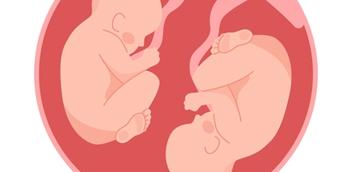
FDA approves Tdap vaccine for use during pregnancy to prevent whooping cough
The Food and Drug Administration (FDA) has approved another Tdap vaccine option for use during pregnancy to prevent pertussis, otherwise known as whooping cough.
The FDA on January 9, 2022, licensed Adacel (Sanofi Pasteur) for immunization during the third trimester to prevent whooping cough in infants younger than 2 months old.
In October, the FDA approved a different Tdap vaccine known as Boostrix (GlaxoSmithKline) for the same indication. Boostrix was the first vaccine specifically approved to prevent a disease in newborns through vaccination during pregnancy.
These vaccines are groundbreaking because they offer protection for the neonates before the recommended age of the first dose of the vaccine at 2 months of age. “Tdap vaccination in pregnancy reduces the risk of pertussis infection by approximately 90% in a newborn’s first two months of life and reduces pertussis-related deaths by 95% in infants of vaccinated mothers.”1
The vaccine is now indicated for the following uses:
Active booster immunization against tetanus, diptheria and pertussis. Adacel is approved for use in people aged 10 to 64 years.
Immunization during the third trimester of pregnancy to prevent pertussis in infants younger than 2 months of age.
The vaccine is administered as a single, intramuscular injection shot.
According to the Centers for Disease Control and Prevention (CDC), pertussis starts as a common cold, but differs in that a patient can develop a cough that lasts for weeks or months. Being more severe in infants makes the Tdap vaccine that much more important for mothers.
Even healthy babies can get whooping cough, the CDC also wrote, because their immune systems are still developing. They may only have the antibodies they receive from their mother to help protect them from infections.
The CDC also said that many babies with whooping cough don’t cough at all. Instead, it wrote on its site, it may cause apnea and cause the baby to turn blue or struggle to breathe. It may also seem like the common cold for the duration of the illness, not only in the beginning.2
References
- Amirthalingam G, Campbell H, Ribeiro S et al. Sustained effectiveness of the maternal pertussis immunization program in England 3 years following introduction. Clin Infect Dis. 2016;63(S4):S236 S236–S243.
- CDC. Whooping Cough is Deadly for Babies. Centers for Disease Control and Prevention. Published December 1, 2022. Accessed January 13, 2023. https://www.cdc.gov/pertussis/pregnant/mom/deadly-disease-for-baby.html
Newsletter
Get the latest clinical updates, case studies, and expert commentary in obstetric and gynecologic care. Sign up now to stay informed.









